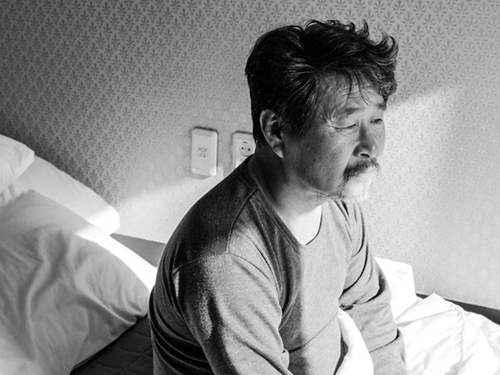
“Hong captures these contrasting dramas in typically unadorned style, utilizing the hotel as both a symbolic space of refuge and reconciliation and a practical setting for the comings and goings of a variety of personalities (although, curiously, these five seem to be the hotel’s only visitors – is this a character study or a ghost story?). In a masterfully staged dinner sequence (the only time the film leaves the vicinity of the hotel), the men, fuelled by gallons of makgeolli, confront a lifetime of demons in a moment of emotional bloodletting to rival the climatic interpersonal breakdown that punctuates On the Beach At Night Alone (2017), while the women, seated nearby, quietly eavesdrop. An unexpected, disarmingly poetic flourish follows, as Hong dovetails these stories one final time, suggesting at once potential pasts and impossible futures, in the process opening up the film to a number of personal readings.”
Jordan Cronk1
“Hotel by the River exudes a casualness that starkly contrasts with Hong’s enraged and almost abstract Grass. The structural experimentation of many of Hong’s recent films has been abandoned in Hotel by the River for a wandering yet more-or-less three-act structure. And Hong’s favorite theme – a man’s hypocritical and self-destructive pursuit of a woman – has been relegated here to a supplemental concern. Instead, the filmmaker dramatizes the reunion between an acclaimed poet, Younghwan (Ki Joo-bong), and his two adult sons, Kyung-soo (Kwon Hae-hyo) and Byung-soo (Yu Jun-sang). Younghwan is staying in the aforementioned hotel at length and free of charge, his state of impermanency affirming the surreal sense of anonymity that’s fostered by the winter landscapes.”
Chuck Bowen2
- 1Jordan Cronk, “Hotel by the River (Hong Sangsoo, South Korea) – Masters,” Cinema Scope Online.
- 2Chuck Bowen, “Hotel by the River,” Slant Magazine, 5 September 2018.

